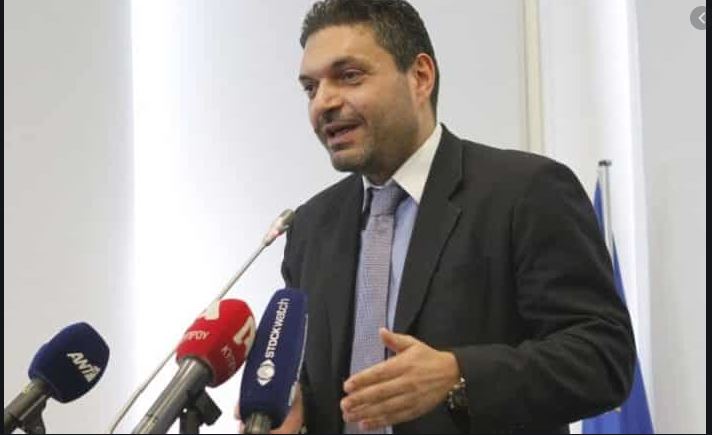The government said on Monday it will look into the possibility of price caps on essential goods, in a bid to deal with inflationary trends.
Speaking in parliament during the opening discussion of the 2022 state budget, Finance Minister Constantinos Petrides said Cyprus is among a handful of countries that alleviate price pressures on consumers through payment of cost of living allowance, compensation to farmers, and reductions in electricity rates.
Petrides warned price ceilings cannot be implemented on all goods but added that the commerce ministry will examine the possibility of price caps on certain goods, as permitted by law, such as milk, water and bread.
In terms of the overall economic picture, Petrides said Cyprus is moving from economic recovery and into a growth trajectory, as he presented the state budget for fiscal year 2022.
Outlining government policy for the coming years, the minister listed the priorities as safeguarding public health, business growth, transforming the island into a sustainable regional business hub, social welfare and ‘green growth’.
Petrides told MPs the state’s €10.4 billion balance sheet will remain in deficit for 2022, albeit at an estimated 1.1 per cent of GDP – far lower than the 5.5 per cent registered in 2021 amid the coronavirus pandemic.
Summing up the economic indices, the minister projected a growth rate of 5.5 per cent for this year – a percentage point higher than the EU average – inflation at 2 per cent, unemployment at 7.5 per cent, while public debt will come down to 107.7 per cent from the high of 119 per cent.
For 2022, the ministry forecasts economic growth of 4 per cent, inflation at 1.5 per cent, and unemployment further dropping to 6.7 per cent. Public debt is expected to decline to 100.9 per cent.
Regarding inflationary trends, Petrides said the consensus view sees these as transient. Official forecasts are that the inflation rate will stabilise at 2 per cent this year.
The tools at the government’s disposal to manage inflation comprise monetary policy (interest rates), compensation to farmers, the cost of living allowance payment, and reducing electricity rates.
Other types of interventions are not advisable, said Petrides. He cited price caps as an example, which when implemented in other countries led to the rise of the black market and shortages, but he added that price ceilings on essential goods are being considered and are permissible under Cyprus law.
The financial sector also appears to be holding up, with non-performing exposures currently accounting for 18 per cent of all loans – a small increase from 17.7 per cent since April 2020 when the country went into lockdown mode.
The minister said the goal was to reach conditions of full employment (5 per cent) which would allow for instituting a national minimum wage. Whereas the joblessness rate in Cyprus stands lower than the EU average, a positive, Petrides nevertheless expressed concern about the ongoing lack of workers in the hotel industry and catering – partly due to people having stopped looking for work and relying on benefits to get by.
Looking ahead at the biggest expenditures during the 2022-2024 period, Petrides cited €4.9 billion in welfare benefits, €1.2 billion in projects under construction, €1.05 billion in co-financed projects, €719 million for the national recovery and resilience plan, €717.2 million on ‘green growth’, and €169.2 million for digital transformation projects.
The minister urged political parties to work with the government toward the common goal of reining in the public debt, noting that calls for increased spending were not helpful.
He further noted that the risk of social exclusion index in Cyprus is at the lowest levels in years – 17 per cent compared to the EU average of 22 per cent.
His remark prompted a tense exchange with Aristos Damianou, an MP with main opposition Akel, who countered that one in five Cypriots are currently at risk of poverty.
Hitting back, Petrides recalled that during the Akel administration of 2008 to 2013, one in three Cypriots were at risk of poverty.
Regarding environmental tax reform, the minister said the government has hired an advisor on this issue.
Petrides noted that the country’s growth model is changing, with an emphasis on shipping, renewable energy sources and high tech.
On attracting foreign investment, he said that 137 high-tech companies employing 13,000 people currently operate in the Republic. Meantime a businessperson from Slovakia has shown interest in domiciling operations in Cyprus and bringing some 500 employees here.
Referring to the now-defunct citizenship-by-investment scheme – nixed late last year – he said the government has acknowledged the shortcomings and mistakes.







Click here to change your cookie preferences